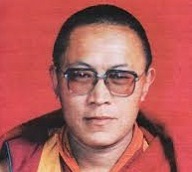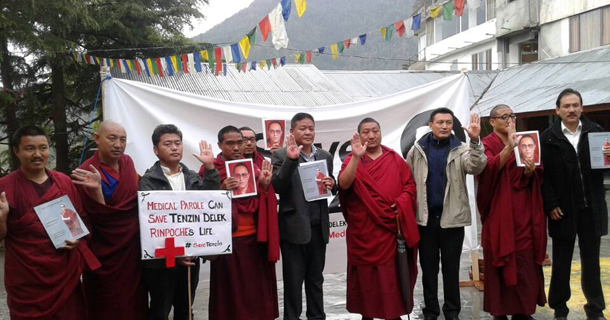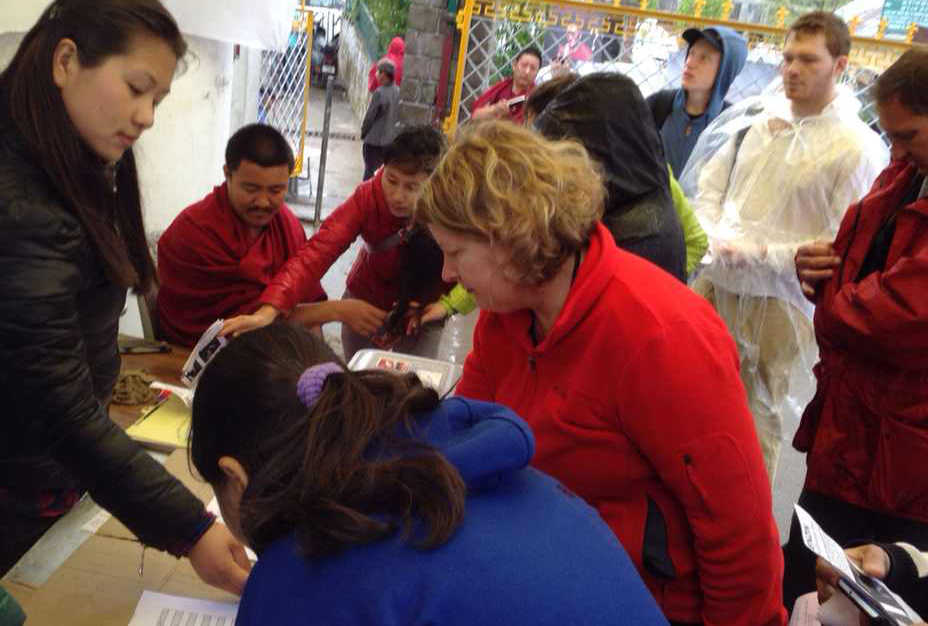Tulku Tenzin Delek Rinpoche is a revered Tibetan Buddhist lama from Othog in Lithang, Kardze, which is in the present-day Sichuan Province. He is held in great affection by the Tibetan community for his campaigns to restore Tibetan culture and religion, his social welfare activities and his criticism of repressive Chinese policies in Tibet. He has been in prison since 2002 and there is serious concern for his health. The Tibetan exile community is campaigning for his release on medical parole.
Rinpoche was among the many people arrested when a bomb exploded in Chengdu in the Sichuan province on April 3, 2002. He was initially sentenced to death, but after considerable protest his sentence was commuted to life imprisonment. Lobsang Dondrup, who was accused along with Rinpoche in the same case, was executed almost immediately.
Students for a Free Tibet-India and the Trulku Tenzin Delek Rinpoche Service Community have launched a campaign to obtain medical parole for Rinpoche as it is known that he has a serious heart condition and is in very poor health. This follows many protests against Rinpoche’s imprisonment over the years, including collection of signatures, demonstrations, speeches, written articles and prayers. This year a group of his former students published a magazine titled Gratitude to Tenzin Delek Rinpoche.
Rinpoche is in favour of appeal to the higher courts as he believes he has not broken any Chinese law, saying “I have never done anything against Chinese law, you can appeal to higher courts…you can continue all protest and appeal activities.” In support of this wish, the Tibetan Administration and Tibetan non-government organisations have approached international organisations and individuals promoting justice, such as the United Nations, world leaders and human rights groups and associations. In their approaches, they attest to Rinpoche’s critical health and ask for international pressure to be put on China to release Rinpoche so that he can be treated abroad, and if not, that his case should be filed internationally by independent advocates. They also ask that international pressure is put on the Chinese government to guarantee that his health needs will be met.
Rinpoche has inspired popular support because of his long history of working for the Tibetan cause and his tireless efforts on behalf of Tibetans living in Tibet. In 1979, while he still lived in Tibet, he met envoys of His Holiness the Dalai Lama who were visiting Tibet and told them about the destruction of Tibetan monasteries. He also had an audience with His Holiness the 10th Panchen Lama and discussed the re-opening of monasteries in Kham province. In 1980 Rinpoche was involved in the re-opening of Lithang monastery.
Two years later Rinpoche was compelled to leave Tibet and he fled to India. On arrival in India, he obtained an audience with His Holiness the Dalai Lama. He was re-confirmed as the reincarnation of Geshi Adang Phuntsok and enthroned in Dregpung Monastery where he studied Buddhist philosophy.
He later returned to Tibet in response to appeals from people living there, in order to promote the building of schools, nursing homes, retreat homes and monasteries; and to persuade people not to practise Dorjee Shugden [a practice discouraged by His Holiness the Dalai Lama who is concerned that it will be divisive for the Buddhist community]. He also became involved in environmental protection; maintenance of social stability; addressing poverty; resolving disputes and campaigning against drinking alcohol, smoking, gambling and killing wild animals.
In 1988, still in Tibet, he had a second audience with His Holiness the 10th Panchen Lama who named him Thupten Chokyi Nyima. He was granted land with permission to build a monastery there, and entrusted to look after many important Buddhist statues. The Chinese authorities considered arresting him then, but relented under public pressure and he remained free until his arrest in 2002.
The current ongoing campaign for his release is now focussing on Rinpoche’s health and his urgent need for effective medical treatment. Members of Tulku Tenzin Delek Rinpoche Service Community are thanking everyone who has supported the campaigns for his release in the past and for renewing their efforts at this critical time.








 Print
Print Email
Email